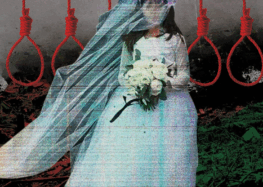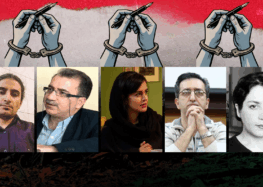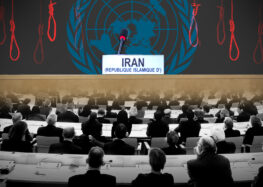Iran presses its crackdown on reformists
Printed in the International Herald Tribune on Apr 20, 2010
The Iranian authorities suspended two prominent opposition political parties, banned a newspaper and handed down prison sentences to three reformist political figures on Monday in the latest signs that the hard-line rulers aim to crush any official political representation by the reformist movement.
The opposition parties, the Islamic Iran Participation Front and the Mojahedin of the Islamic Revolution, were told to suspend all activities until a final decision was made about their status, according to the official news agency IRNA. The move was widely understood as a precursor to a full legal ban.
The Mojahedin of the Islamic Revolution, established during the Islamic Revolution in 1979, evolved to become a reformist organ and supported Mir-Hossein Moussavi, the opposition candidate in the disputed presidential elections in June. The Islamic Iran Participation Front was formed in 1997, after the victory of a reformist, Mohammad Khatami, as president, and it quickly became the most important reformist political group in the country.
The suspension was not a surprise, as many of the parties’ members had already been arrested or jailed. But it suggested that the authorities might be moving more aggressively to stamp out reformist political groups as the anniversary of the election draws closer.
The government also banned the reformist newspaper Bahar, accusing it of spreading doubts about the election and questioning the Islamic system of government, according to the reformist Web site Parleman News. Bahar had started publishing only three months ago, after a government ban on the popular reformist daily Etemad.
The three politicians, Mostafa Tajzadeh, Davood Soleimani and Mohsen Mirdamadi, each received six-year prison sentences and a 10-year ban on all activities related to political parties or the news media, according to the Fars news agency. They were arrested last summer in the wake of the post-election protests and convicted in a mass trial of opposition supporters on charges of conspiracy and propaganda against the Iranian government.
All three men were active during the reformist presidency of Mr. Khatami, between 1997 and 2005. Mr. Mirdamadi, one of the organizers of the takeover of the U.S. Embassy in 1979 and a member of Parliament for four years, was mentioned by Mr. Moussavi in his latest statement deploring the imprisonment of reformist figures.
Last week, Mr. Khatami was banned from traveling abroad to attend a nuclear disarmament conference in Japan, opposition Web sites reported. He openly supported the opposition movement last summer during a wave of protests against the re-election of President Mahmoud Ahmadinejad, which was widely viewed as fraudulent. Conservatives have called for the arrest of Mr. Khatami, as well as Mr. Moussavi and other opposition leaders, though those calls have faded since the opposition movement lost momentum two months ago.
The International Campaign for Human Rights in Iran, based in New York, called the travel ban part of a systematic effort to ‘‘contain critical voices and prevent them from having contact with the international community.’’
Defense Secretary Robert M. Gates has acknowledged that he wrote a classified memorandum to the White House in January raising significant questions about long-term Iran policy, but says his goal was only ‘‘to contribute to an orderly and timely decision-making process,’’ Thom Shanker and David E. Sanger reported from Washington.
The New York Times and its global edition, the International Herald Tribune, reported that Mr. Gates had warned in a secret three-page memo that the United States did not have an effective long-range policy for dealing with Iran’s steady progress toward nuclear capability. Before publication of the article, Obama administration officials had not publicly confirmed or denied the memo’s existence.
In a statement issued Sunday, Mr. Gates said he wished to correct what he described as mischaracterizations about the memo’s content and purpose, and to dispel any perception among allies that the administration had failed to think through how to deal with Iran.
‘‘With the administration’s pivot to a pressure track on Iran earlier this year, the memo identified next steps in our defense planning process where further interagency discussion and policy decisions would be needed in the months and weeks ahead,’’ Mr. Gates said.
‘‘The memo was not intended as a ‘wake-up call’ or received as such by the president’s national security team,’’ he added.






